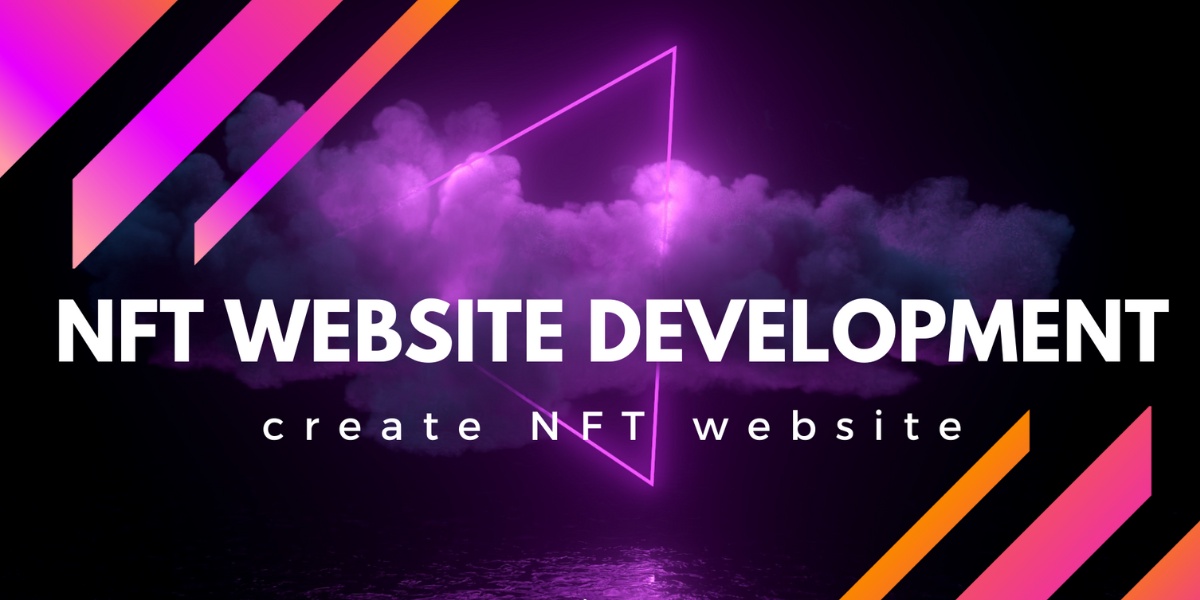The world of digital art and collectibles has witnessed a seismic shift in recent years with the advent of Non-Fungible Tokens (NFTs). NFTs have opened up new possibilities for creators and collectors alike, revolutionizing how we perceive and exchange digital assets. As NFTs continue to gain popularity, the demand for NFT marketplaces and websites has soared. In this blog post, we'll delve into expert insights on NFT website development to help you ride the wave of this exciting digital revolution.
Understanding NFTs
Before diving into NFT website development, it's crucial to have a firm grasp of what NFTs are. NFTs are unique, indivisible tokens that are used to represent ownership of a digital or physical asset on a blockchain. Unlike cryptocurrencies like Bitcoin or Ethereum, each NFT has a distinct value and cannot be exchanged on a one-to-one basis. This uniqueness and scarcity make NFTs ideal for digital art, collectibles, virtual real estate, and more.
NFT Website Development: Key Considerations
Blockchain Integration
The foundation of any NFT website is blockchain integration. Ethereum, Binance Smart Chain, and other blockchains are commonly used for NFTs. Your choice of blockchain will impact transaction speed, security, and costs. It's essential to select a blockchain that aligns with your project's goals and audience.
Smart Contracts
Smart contracts are self-executing contracts with the terms of the agreement directly written into code. In NFT development, smart contracts handle the creation, transfer, and ownership of NFTs. Collaborating with blockchain developers experienced in smart contract development is crucial to ensure the security and functionality of your NFT website.
User Experience
User experience is paramount in NFT website development. A well-designed, user-friendly interface can make or break your platform's success. Consider intuitive navigation, responsive design, and seamless integration with wallets and payment gateways to enhance the user experience.
Wallet Integration
NFTs are typically stored in digital wallets. Integrating wallet functionality into your website allows users to connect their wallets, view their NFT collections, and perform transactions directly on your platform. Ensure compatibility with popular wallets like MetaMask and Trust Wallet.
Gas Fees
Gas fees are transaction costs associated with blockchain networks. They can vary significantly depending on network congestion. To mitigate user frustration, consider implementing features like batch transactions to reduce gas costs or offering fee estimations.
Security
Security is paramount in NFT development. Protect your users' digital assets and personal information by implementing robust security measures, including HTTPS encryption, two-factor authentication, and regular security audits.
Metadata Storage
NFTs often come with metadata, which contains information about the digital asset. Ensure secure and efficient storage of metadata, as it's an integral part of NFT ownership. Many NFT marketplaces use IPFS (InterPlanetary File System) for decentralized and reliable storage.
Minting and Marketplace Features
Consider the features you want to offer on your NFT website, such as minting (the creation of NFTs), listing NFTs for sale, bidding, and trading. Each of these features requires careful planning and development to provide a seamless user experience.
Licensing and Legal Considerations
Navigating the legal landscape surrounding NFTs is complex. Consult with legal experts to ensure you understand copyright, intellectual property, and licensing issues related to the NFTs hosted on your platform. Implementing clear terms of service and content policies is essential.
Scalability
Plan for scalability from the outset. As your NFT website gains popularity, you'll need to handle increased traffic and transactions. Scalability may involve optimizing code, using decentralized technologies, or adopting layer 2 solutions.
Examples of Successful NFT Websites
- OpenSea: OpenSea is one of the largest NFT marketplaces, built on the Ethereum blockchain. It offers a wide range of digital assets, including art, music, virtual real estate, and more.
- Rarible: Rarible is a decentralized NFT marketplace that allows users to create, buy, and sell NFTs. It also offers governance tokens, giving users a say in platform decisions.
- NBA Top Shot: NBA Top Shot is a unique NFT platform that allows basketball fans to buy, sell, and trade officially licensed NBA collectible highlights.
- CryptoKitties: CryptoKitties is one of the earliest NFT projects, focusing on the ownership and breeding of digital cats. It gained immense popularity in its early days.
Conclusion
The NFT wave has transformed the digital landscape, offering new opportunities for creators, collectors, and entrepreneurs. NFT website development requires careful planning, blockchain integration, security measures, and a focus on user experience. By considering these key factors and learning from successful NFT platforms, you can navigate the NFT wave and create a thriving digital marketplace that caters to the growing demand for unique digital assets. Stay informed, adapt to emerging trends, and seize the opportunities presented by the NFT revolution.


No comments yet